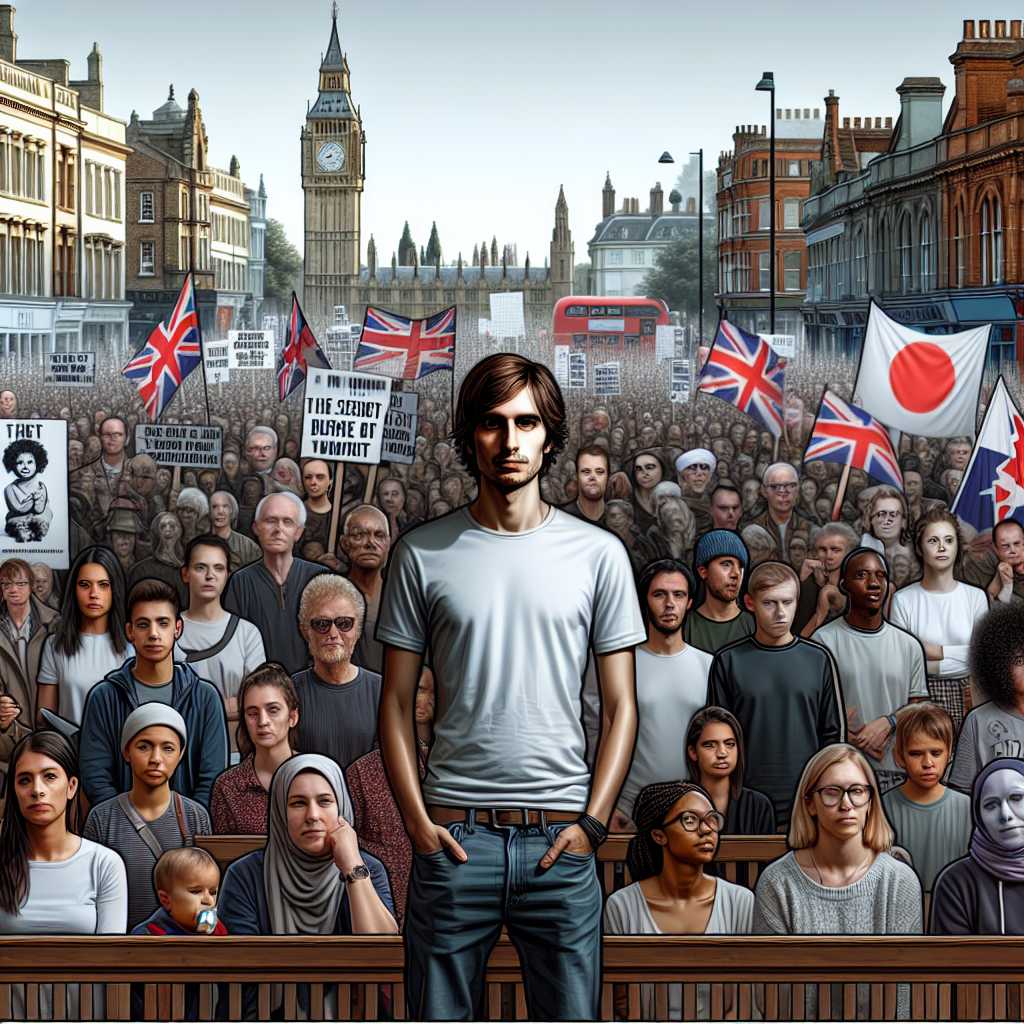Example Article
Origins and Rise to Prominence
Tommy Robinson, born Stephen Christopher Yaxley-Lennon in 1982, emerged as a prominent figure within the British far-right activism scene during the early 2010s. Initially involved with various nationalist groups, Robinson co-founded the English Defence League (EDL) in 2009, positioning himself as a vocal critic of Islamic extremism and what he described as the failures of mainstream politics to address community tensions. The EDL quickly gained media attention for its street demonstrations, which often sparked clashes with counter-protesters and police.
Robinson’s rise can be seen as part of a broader European trend where concerns about immigration, national identity, and security became increasingly politicised. His ability to harness social media platforms amplified his message beyond traditional political channels, attracting a following that spanned beyond the UK. However, this visibility also brought significant scrutiny from authorities, anti-racism activists, and the media.
His background prior to activism was marked by brushes with the law, which critics have used to question his credibility. Yet supporters argue that his experiences give him an authentic voice on issues of justice and community safety. This dichotomy set the stage for Robinson’s polarising public persona.
Legal Battles and Media Controversy
One of the most defining aspects of Tommy Robinson’s public life has been his numerous legal encounters. Notably, his arrest in 2018 for contempt of court during a high-profile grooming gang trial sparked a global debate on press freedom versus legal restrictions designed to ensure fair trials. Supporters claimed his imprisonment was politically motivated censorship, while critics contended that his actions risked prejudicing judicial proceedings.
Robinson’s use of social media has been both a tool and a battleground. Platforms like Facebook, Twitter, and YouTube repeatedly suspended or banned him due to breaches of their policies on hate speech and incitement. These actions raised important questions regarding freedom of expression in the digital age and the responsibility of tech companies in moderating content.
His legal challenges have also highlighted the complexities of balancing national security, individual rights, and community cohesion. The media coverage surrounding these events tends to be deeply divided; some portray him as a defender of free speech and truth-teller, while others depict him as a provocateur who exacerbates social divisions.
Impact on British Society and Political Discourse
Tommy Robinson’s activism has undeniably influenced British society’s discourse on immigration, integration, and security policy. His narrative taps into anxieties felt by segments of the population who perceive themselves as neglected by political elites or threatened by cultural changes. This dynamic has contributed to shifts within mainstream politics, with some parties adopting tougher stances on immigration and law enforcement in response.
Conversely, Robinson’s polarising presence has also mobilised opposition groups aiming to counteract far-right ideologies. Anti-fascist organisations and Muslim communities have frequently organised protests against his rallies, underscoring ongoing tensions around race and religion in Britain.
The long-term effects of Robinson’s activism remain contested: while some see him as raising uncomfortable but necessary issues, others warn that his rhetoric risks legitimising xenophobia and undermining social cohesion. His case exemplifies broader challenges faced by democracies wrestling with pluralism in an era of rapid social change.
The Future Trajectory: From Activism to Mainstream Politics?
In recent years, Tommy Robinson has expressed ambitions that extend beyond street-level activism towards formal political engagement. Attempts to stand for elected office have met with limited success but indicate a strategic shift aimed at influencing policy from within established institutions. This transition mirrors patterns observed among other populist figures across Europe who leverage grassroots support into electoral platforms.
However, barriers remain significant: mainstream political parties are wary of associating with individuals linked to extremist views or legal controversies. Furthermore, public opinion remains deeply split over Robinson’s legitimacy as a political actor.
Looking ahead, Robinson’s ability to maintain relevance will depend on navigating these obstacles while adapting his messaging to appeal beyond his core base. His journey underscores the evolving nature of political activism in Britain—where traditional boundaries between protest movements and party politics are increasingly blurred.
Conclusion: A Mirror Reflecting Britain’s Divides
Tommy Robinson stands as a figure emblematic of contemporary Britain’s cultural and political divides. His trajectory from street protests to attempts at formal politics encapsulates both the power and peril inherent in populist movements centred on identity and security concerns. While he commands fervent support from certain quarters, he also evokes strong opposition due to the contentious nature of his rhetoric and methods.
Robinson’s story invites reflection on how societies balance free expression with social harmony, how media ecosystems shape political narratives, and how disenfranchised voices find outlets in modern democracy. Regardless of individual perspectives on his cause or character, understanding his role is essential for grasping the complexities shaping Britain’s current socio-political landscape.
Ultimately, Tommy Robinson acts as a mirror reflecting unresolved tensions within British society—tensions that will continue to influence debates around identity, governance, and community cohesion for years to come.
Notes
- The English Defence League was founded in 2009 amidst rising concerns over Islamic extremism.
- Robinson’s 2018 arrest sparked international debate about press freedom versus fair trial rights.
- Social media bans against Robinson highlight ongoing conflicts over online hate speech policies.
- Populist figures like Robinson often attempt transitions from activism into formal politics.
- Britain continues grappling with balancing free expression against social cohesion amid growing diversity.

